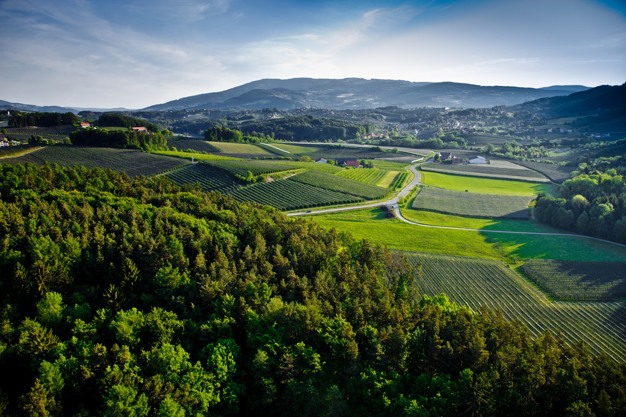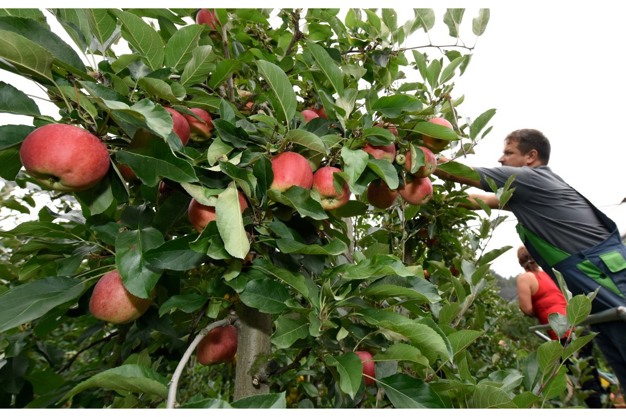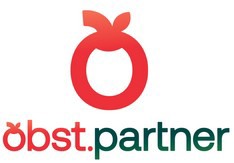The Styrian apple industry will have to accept massive harvest losses again this year. After the seventh frost event in the past eight years, the OPST Group has decided to accelerate the restructuring of its leading producer organisation, which had already been planned. The founding of Obst Partner Fruchthandels GmbH and the relocation of the packaging and sorting facilities to Puch bei Weiz marks the start of a new chapter in the group's history.
Since the takeover of Steirerfrucht in 2016 and Obst Gössl two years later, the OPST Group has focussed on a two-company strategy. "The frost damage in recent years and the corresponding losses have left deep scars within our cooperative. Due to a lack of succession, some businesses have also ceased trading. We started eight years ago with around 300 fruit farms, of which around 220 still remain. Overall, we expect the harvest volume to gradually stagnate over the next five to ten years. Accordingly, we have streamlined our organisation by turning two companies into one. However, the Von Herzen Bio and Frisch Saftig Steirisch brands will continue to exist. The pome fruit IP will be stored in Wollsdorf until 39, while packaging and sorting will now be relocated to Puch," says chairman Bernhard Ramminger.

Harvest losses of up to 60 per cent
The renewed harvest losses this year have once again significantly accelerated the reorganisation, continues Ramminger. "The frost events have confirmed our approach. This means that we still have two years of transition time, as originally planned, but we will accelerate the reorganisation at the Puch site." He emphasises that the management of the OPST Group also wants to wait for the exact harvest volume. "We are now cautiously positive that we will slightly exceed the original harvest estimate and bring in around 40 per cent instead of 35 per cent of a normal harvest. We will only make final decisions once the harvest has been completed and analysed." The harvest is around 10-14 days ahead of the normal process.
Due to the small quantities, the main focus this year will be on supplying the Austrian domestic market and the most important export customers. "The proportion of industrial produce is certainly higher than usual this year, i.e. 5-10 per cent in the conventional and 10-20 per cent in the organic sector. However, prices are currently very good, even for the weaker qualities." The situation in the orchards varies greatly, emphasises Ramminger: "In Northern Styria, the frost hit the farms the hardest, while yields are much better in Southern Styria. However, the situation is sometimes different every ten metres within the individual plants. The frost came so late this year that small apples were already hanging on the trees. The fruit is particularly sensitive at this stage, which is why the damage was so severe. The situation is completely different for pears, which are less sensitive at this stage. There are no clear differences at variety level: Gala has been very badly damaged in terms of quantity, whereas Golden has mainly suffered major quality problems such as skin rust. In this respect, there is no positive exception at variety level."
Ramminger emphasises that all protective measures - whether heating, frost ovens or irrigation - have worked well this year. "The motivation among our members to make further investments is high. In the wake of this year's crop losses, we have also been promised further support from politicians. Access to water, such as reservoirs and the like, was very difficult in the past and is to be made easier."

Focus on supplying the domestic market
All in all, the marketing of pome fruit got off to a good start. "We were able to maintain the high price level of the previous season and, by and large, there was a seamless transition to the new harvest. The current demand on the Austrian domestic market is not excessive, but normal for the time of year. Traditionally, a lot of fruit from our own orchards is consumed in autumn and some of the summer fruit is still in the foreground. For us, the big issue will be to still be on the market with good quality fruit in the second half of the season or from April-May."
In terms of volume, Gala, Kanzi and Evelina are still the main varieties. Ramminger: "We will initially limit our range of varieties to 12-15 varieties, and in the medium term even reduce it to fewer than ten varieties. In terms of the individual varieties, we can see that Golden is still on the decline, as are some smaller varieties such as Arlette and the like. In terms of club apples, we are continuing to focus on the tried and tested varieties such as Kanzi, Rockit, Tessa and Evelina. We will continue to pursue our re-grafting strategy in the coming years instead of planting new varieties. This means that we have renewed around 30 per cent of our varieties in the last five years, which may have been challenging, but it was also worthwhile."
Photo credit: obst.partner Handels GmbH
For more information:
Bernhard Ramminger
obst.partner Handels GmbH
Harl 73
8182 Puch near Weiz
Tel: +43 3177 2201 4000
of[email protected]
www.obstpartner.at
